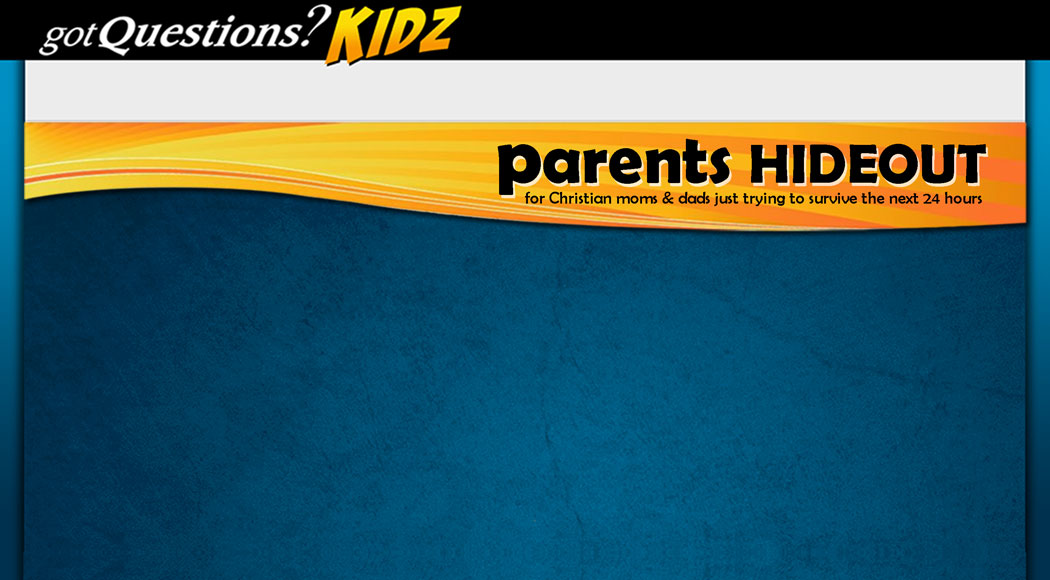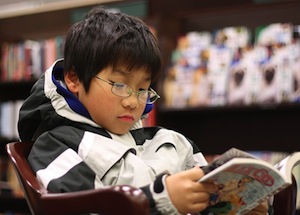
Discovering Dyslexia
by Kersley Fitzgerald
 There was a time when the second-most common comment my husband and I received about our son, JT (closely behind “I wish we could hook that boy up to a power generator!”) was, “He is so smart! You better watch that one!”
There was a time when the second-most common comment my husband and I received about our son, JT (closely behind “I wish we could hook that boy up to a power generator!”) was, “He is so smart! You better watch that one!”
He could be clever, but for the most part I chalked it up to his size. When you’re 3 but look 18 months, people tend to think you’re brilliant.
He was a pretty quick talker. We adopted him at 17 months old, and it wasn’t long before he was beating the baby books to smithereens with his word knowledge. He was intentional too. He’d go around the room and point to things to ask what they were. He was always smart mechanically, putting together Lego sets in record time. But reading was slow to come, and reading comprehension was abysmal.
It was more than that, though. The child cannot remember more than one instruction at a time. He’s not dumb—not by a long shot. So why couldn’t he remember to let the dog out and put his shoes away? Why could he have a near-photographic memory for directions (I still ask him how to get to his friends’ houses) but not be able to tell me the plot of the Gilligan’s Island episode he just watched? How can he play Wynton Marsalis on the trumpet nearly by ear but not remember to put his trumpet away? And why did he lose four winter coats in the span of one week?
If you’re any kind of experienced parent, you’ve already called it out a couple times, hoping I’d hear you. But it wasn’t until a couple of weeks ago that the thought occurred to me. So I asked (showing how little I knew), “Hey, Bud. When you read, do the letters sometimes switch places?”
“No,” he said, not looking up from his Legos. “I mean, not all the time.”
I remember seven years ago. We had just moved into our new house in Colorado Springs and had walked down to the park. JT was super athletic back then, and was swinging on the monkey bars. But his right hand slipped, and he fell about five feet onto his back, with his right hand underneath him.
He screamed in my ear the whole walk home. We gave him some Motrin and put an ice pack on his wrist, then loaded him up in the car to take him to urgent care. On the way there, he fell asleep. Surely his arm isn’t broken if he’s sleeping! So we went out to dinner where he did somersaults on the bench seat the whole time.
About 11:00 that night I sat up in bed. “My son has a broken arm and I didn’t take him to the hospital.” We took him in the next morning, and he spent several months in a cast.
I had a similar punched-in-the-gut feeling when this reality hit: my son most likely has a reading disability and I didn’t realize it until he was twelve.
I’m pretty good at finding answers on the internet—it’s a large part of my job. But a cursory search resulted in “Come to our clinic and pay lots of money.” So I hit Facebook. Because, you know, Facebook.
Immediately, I got into a 40-comment discussion with a college friend and a barely-acquaintance about their kids’ struggles with dyslexia. Then found out a coworker and her brother have it. And the son of an officemate, who goes to JT’s school and knows his teachers. And now, with the barest of comments, JT’s principal is scheming and formulating and generally getting things under control for next year.
He’s not even diagnosed yet and already I’ve walked into a living, breathing support group.
But I think the biggest change in me has already happened. Almost instantly I got more patience. I started to understand that the things about him that frustrate me the most are things I need to learn how to work around. The other day he was supposed to be writing something down from an encyclopedia. When he hesitated, I scolded him. He said he was memorizing it so he could write it from memory. At the time, I thought he was procrastinating. Now I know if you have dyslexia, it’s easier to write things from memory than to copy.
But I also began to realize what a disservice the American Christian culture does to kids with this problem. Because as “good Christian parents” we are trained that any hesitation to obey a parent’s command is a result of the sin nature we’re all born with and the only proper answer is discipline to teach them immediate obedience. Just yesterday I told a friend our suspicions. He’s older, a retired pastor—and he adores JT. His reply was a skeptical look and, “Oh, I thought maybe he was just lazy.”
That is what we hear, but I’ve never heard anyone from the church say, “If your kid doesn’t follow directions, you might look into an underlying physiological issue.” Never. And for someone like me, for whom parenthood is the opposite of instinctual, those words need to be said.
Because maybe he’s not being disobedient. Maybe I’m punishing him because of something out of his control. And maybe he is wicked smart. Because how can he get such good grades in history and science (subjects we review with him verbally) with reading comprehension problems?
Like I said, this is just the beginning. There are some things I want to try, like loading the dyslexic font onto my Kindle and having him practice spelling by writing the words in different colors. If you've faced these challenges, I'd love to know what works for you (just comment below).
We are just starting this journey. Like Red Green says, “I’m pullin’ for you. We’re all in this together.”
Kersley Fitzgerald is a former Air Force officer, former Air Force wife, and current editor of Got Questions’ blog site, Blogos.org. She and her husband adopted JT from Thailand when he was 18 months old. He has spent the ensuing years teaching her more about God than any theology course could.
Photo by Ragesoss, from Wikimedia Commons
comments powered by Disqus
- January 14: Cell Wars
- December 15: When Christmas is Sad
- November 24: Teaching Kids Thankfulness
- October 8: Kids and Chores
- August 11: Shootin' Hoops
- July 8: Children and Gender
- June 9: Live the Music
- May 12: Facing Temptation
- April 20: Boundaries in Fashion
- March 24: Underwear on the Kitchen Floor
- Feb. 16: Parent-Teacher Communication
- February 2: Kids and the Internet
- December 29: New Year's Goal
- December 1: Holiday Stress
- October 22: Boys Will Be Boys
- September 25: Managing a Large Family
- September 10: Teaching Children
Discernment - September 3: Growing Grama:
Dealing with the Heart - August 20: Learning to Love My
Preschooler - August 7: An Attitude of Gratitude
- July 29: Accentuate the Positive
- July 9: The Essay Train
- June 19: Discovering Dyslexia
- June 12: Picky Eaters
- May 28: Hope for the Future
- May 14: A Stay-at-Home Mom
- May 8: Becoming a Man
- April 9: Homework Wars
- April 3: The Life of One Working Mom
- March 5: Resolving Conflict
- January 30: God in the Everyday
- December 31: The Hunger Games
- December 12: Keeping It Real
- December 5: Curing the Gimmes
- November 27: Giving Thanks
- November 19: The Survival Guide to
Raising Girls - November 14: The Daily Download
- November 6: Bad Parenting Day
- October 30: Taking Back October 31st
- October 23: The History of GQKidz.org
- October 15: The Little Critics
- October 8: Temper, Temper
- October 1: Bullies and Tender Hearts
- September 24: Spontaneity & Schedules
- August 27: Keeping Preschoolers Busy
- August 13: Making Wise Media Choices
- August 13: Dirt Soup



